|
Un dialogo con Roberto Panzarani (seconda parte) -- A conversation with Roberto Panzarani (part two)   [6 Dec. 04] [6 Dec. 04]
( 16 Ottobre 2004 )
- Permalink -
(usare questo link per puntare direttamente a questo item degli Argomenti)
|
Seconda parte -- Part two
|
 Invito i lettori ad intervenire: Invito i lettori ad intervenire:
|
 An invitation to all readers: An invitation to all readers:
|
|
(T. Correale Santacroce)
|
|
|
(continua dalla Prima parte)
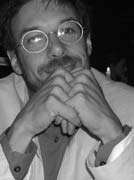 -- Tommaso Correale Santacroce -- -- Tommaso Correale Santacroce --
4. Involucro e contenuto.
Per quanto riguarda la relazione tra il marchio e l'azienda, mi viene in mente quella fase della storia del design in cui l'involucro degli oggetti, grazie allo sviluppo tecnologico, si è scollato dal contenuto. Quando il contenuto di una macchina da scrivere si è trasformato, da un ammasso di leve e parti meccaniche (che obbligavano ad una certa forma), ad un assemblaggio di parti elettroniche, si è posta una scelta, e insieme una grande libertà, a chi si trovava a dover disegnare l'involucro della parti: estetica o praticità? Moda o ergonomia? Molto dello spazio interno di un involucro restava vuoto perché le parti interne si erano rimpicciolite. Ancora adesso la progettazione di un oggetto si sposta propendendo a volte da una parte, a volte dall'altra.
Il valore della sua forma e il valore del suo contenuto spesso non coincidono, eppure dipendono uno dall'altro.
È curioso che la questione degli asset intangibili sembri riguardare il contenuto (il valore dei singoli individui coinvolti in una impresa) per poi invece esprimersi in una dichiarazione di forma (un logo senza un vero sostegno di cambiamento in qualità e responsabilità).
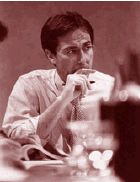 -- Roberto Panzarani -- -- Roberto Panzarani --
Questo è interessante oltre che per gli oggetti anche per le aziende. E' assolutamente incredibile la mancanza di attenzione ai luoghi che le aziende oggi hanno. Nella fase industriale, non solo le aziende ma anche i quartieri erano costruiti per una "destinazione monofunzionale" come direbbe Toefler. (E' molto interessante al riguardo l'ultimo libro di Richard Sennett "Rispetto" ed. Il Mulino).
Pensiamo a Detroit, ad Arese o alla stessa Ivrea. Quest'ultima con la grande differenza della particolare attenzione che Adriano Olivetti dava all'ambiente di lavoro e alla sua ergonomia.
Per quanto riguarda l'esteticità degli oggetti questa sicuramente è diventata importante "economicamente" nella società post-industriale e qui l'Italia ha giocato un ruolo fondamentale.
Naturalmente dando per acquisite tutte le caratteristiche tecniche come perfette. Lo swatch nasce quando i giapponesi avevano inventato un orologio che era 125 volte più preciso di quello di cui avevamo bisogno. Ed ecco che a questo punto "la differenza" economica è data da bello o brutto. E così per tutti gli altri oggetti di Alessi, Frau, (persino per le Ducati o le Ferrari diciamo che sono belle, la loro velocità a questi livelli è una "commodity") ecc, il valore è dato dall'esteticità. Naturalmente tutto questo è compreso strategicamente molto meglio all'estero che qui, ma questo è normale.
Il logo "decade" o danneggia quando ovviamente cadono le fondamenta. Mi sembra che Parmalat possa essere un buon esempio, ma senza andare in questa tragicità, è già significativo che quando cambia l'AD di una azienda importante le azioni in borsa cadono o salgono...
|
 (continuation from the Part one)
(continuation from the Part one)
-- Tommaso Correale Santacroce --
4. Wrapping and content
The relationship between brand and company brings to mind that period in design history when, thanks to technological development, the outer casing of objects became "unhitched" from their content. When the content of a "writing machine" was transformed from a bundle of levers and mechanical parts (which required the machine to assume a given shape) to an assembly of electronic parts, this implied a choice - and great freedom - for those working on the design of the casing: aesthetic or practical considerations? Fashion or ergonomics? Much of the space inside the casing remained empty because the internal parts had become so much smaller. Even now, the design process of any given object tends to shift, first in one direction and then another. The value of its shape and its content often do not coincide, and yet they are interdependent.
It's strange that the question of intangible assets seems to concern content (the value of the individuals involved in a company) only to be expressed in a declaration of form (a logo without any real support for change in terms of quality and responsibility).
-- Roberto Panzarani --
That's interesting, not just in terms of objects but also of companies. It's absolutely amazing to see how little attention companies pay to places nowadays. In the industrial era not just firms but districts too were built for a "mono-functional destination", as Toefler would say. (The latest book by Richard Sennett, "Respect", published in Italy by Il Mulino, is most interesting in this respect).
We need only think of Detroit, Arese or even Ivrea. The last of these is remarkable for the particular care that Adriano Olivetti devoted to the working environment and its ergonomics.
Meanwhile, the aesthetic qualities of objects have undoubtedly become "economically" important in post-industrial society, and here Italy has played a vital role - taking it as given, naturally, that all the technical features are perfect. The Swatch came into being after the Japanese invented a timepiece that was 125 times more precise than we needed. And this is where the "economic difference" comes to depend on whether or not an object is good to look at. The same can be said for the objects made by Alessi or Frau etc (even in the case of a Ducati or a Ferrari we say that they are beautiful as objects, with their speed, at these levels, being considered as a commodity). Their value derives from their aesthetic qualities. Naturally, all of this is understood strategically much better abroad than it is here, but that's par for the course.
Logos can "decline" or cause damage when the underlying fundamentals are missing. I see Parmalat as being a good example, but without going into the details of that dramatic case it is significant to note that when the managing director of a company changes, its share prices go up or down.
|
|
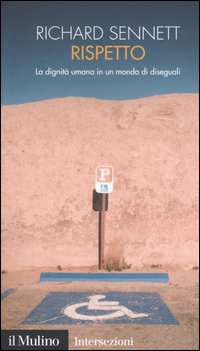 
|
|
5. Emozioni e "non luoghi".
Altra questione che mi viene in mente sono quel che Marc Augé chiama i "non luoghi": gli aeroporti, i centri commerciali, le catene di negozi in merchandising, i parchi tematici che "mimano" luoghi esistenti in altre latitudini...
Se è difficile distinguere tra emozioni originali e emozioni indotte, se i non luoghi esistono non solo sul piano del mercato e del capitale, ma anche sul piano esistenziale, se i modelli non sostenibili hanno saturato le possibilità del pianeta, la monetarizzazione del valore creativo individuale è un passo verso una catastrofe oppure è un segnale di svolta sostanziale?
Proviamo a credere nell'ultima affermazione. Con grande difficoltà e senza grandi illusioni penso tuttavia, come dicevamo, che ci sia una reazione delle persone alla ricerca di una maggiore autenticità. E' come se l'avidità del mercato avesse saturato persino le persone meno attrezzate culturalmente. E quindi la disaffezione che si sta riscontrando per la pubblicità e i modelli che propone inizia ad essere "produttiva" in senso umano. In sostanza ci sono segnali di "intelligenza sociale" che prima erano assolutamente inesistenti. Il tentativo del mercato è dunque di impadronirsi di queste "emozioni" o di queste "disaffezioni", in ogni caso per ricomprenderle in termini monetari. O ci sarà una umanizzazione del mercato o ovviamente si svilupperà una ulteriore "monetizzazione" dei sentimenti umani. Voglio sperare nella prima.
Il tema comunque non sono gli strumenti ma ovviamente i modelli. Chi si occupa di modelli è la politica e purtroppo sono vari anni che in Europa, e in una buona parte del mondo, la politica non attrae cervelli.
|
5. Emotions and "non-places"
Another question that comes to mind is what Marc Augé calls "non-places": airports, shopping centres, chains of "merchandise" shops, theme parks that "mimic" existing places in other latitudes...
If it is difficult to distinguish between original and induced emotions; if "non-places" exist not just at the level of markets and capital, but also at the existential level; and if unsustainable models have exhausted the planet's possibilities: is the "monetisation" of individual creative value a step nearer to catastrophe or a signal of a major change of direction?
Let's pin our hopes on the second option. Although I think, as we were saying, that with great difficulty, and without too many illusions, people are reacting and seeking greater authenticity. It is as though even those people who are most poorly equipped culturally had had enough of the greed of the market. And as a result, the disaffection that we are finding with advertising and the models it proposes are starting to be "productive" in a human sense. In short, there are signs of "social intelligence" that previously just didn't exist. The market is now attempting to take over these "emotions" or "disaffections", and at any rate to encompass them in monetary terms. There will either be a humanisation of the market or else, naturally, human sentiment will become even more "monetised". I would like to hope that the former will be the case.
The key issue, however, is not the instruments but the models. The arena that deals with models is politics and unfortunately, for several years now, in Europe and much of the rest of the world politics has not been attracting the best minds.
|
|
6. Interessi personali e comuni.
Di fronte ad un ritardo sempre crescente nella valorizzazione del patrimonio intangibile del nostro paese e di fronte ad interessi personali che non si mettono in gioco per realizzare interessi comuni, quanto gioca la formazione, o la crescita culturale all'interno delle scuole?
Mi sembra che il terreno fertile ci sia (come anche lei fa notare, lo possiamo vedere anche nel pubblico che esulta ai festival di letteratura e filosofia), ma che siano rare le figure competenti nell'immaginare e realizzare strutture ed eventi che sostengano questa spinta. Come se il ritardo delle istituzioni sia anche a livello delle attività riconosciute...
Come professione sono un formatore e sono tanti anni che mi occupo della formazione dei formatori. Quindi credo nella formazione. Ritengo che senz'altro il futuro economico dell'Italia può trovare grande giovamento dal formare persone che lavorino sugli asset intangibili italiani.
Naturalmente è molto più difficile che formare persone alle attività di ufficio o alle attività di fabbrica.
Se pensiamo ai beni culturali, al turismo, ai festival, sono tutte attività "sistemiche". Quindi formare in questo ambito è molto più complicato.
Pensiamo alle nostre "esperienze": se vado in una città e mi trovo benissimo in un Hotel, e poi vado a comprare il giornale e vengo trattato in modo sgarbato, il mio "ricordo" non è più eccellente. Quindi, se voglio formare, devo formare il giornalaio e il personale dell'Hotel insieme e così via. Qui questo modello formativo non esiste. E così via....
|
6. Personal and common interests.
In the face of a lengthening timelag in capitalising on our country's intangible heritage and of personal interests that are unwilling to enter into play to achieve common interests, how important is training, or cultural growth, in schools?
It seems to me that although there is fertile ground here (as you too point out, this also emerges from the public's great enjoyment of literature and philosophy festivals), there is a lack of people who are able to imagine and achieve structures and events to support this impetus. As if the timelag in the institutions also existed in recognised activities...
I'm a trainer by profession and for many years now have been working on the training of trainers. So I believe in training. I think that Italy's economic future could benefit greatly from training people who would work on the country's intangible assets.
Naturally, this is much more difficult than training people in office or factory work.
If we consider cultural assets, tourism or festivals, these are all "systematic" activities, which means that training in this sphere is much more complicated.
We need only think of our own personal experiences. If I visit a city and stay in a hotel where I'm treated really well, but then go out to buy a newspaper and the newsagent is rude to me, my "memory" of that trip will no longer be such a good one. So, if I'm planning to train people in this sector, I need to train the newsagent and the staff of the hotel at the same time, and so on. This training model doesn't exist here in Italy...
|
|
 
|
|
7. Pre e post industriale.
Lei parla di "visione "astratta" fuori del tempo della realtà" e in effetti, tra le quotazioni di David Bowie in borsa e la produzione di uno spettacolo teatrale in Italia (altro che catena di montaggio, qui si parla di artigianato) c'è un abisso.
Ma è anche una delle caratteristiche peculiari della cultura italiana ed europea. Un fare ad hoc, un personalizzare e mirare al pezzo unico come più alto valore, è il dramma antieconomico e insieme la ricchezza (intangibile) della nostra cultura. A suo parere, quale potrebbe essere una strada da seguire per render il dramma una commedia a lieto fine e la ricchezza qualcosa di più tangibile?
La nostra è una "unicità" che viene dalla nostra storia, dalle botteghe del rinascimento e da tutte le esperienze che si sono dipanate nei secoli...
E' importante ricordare una cosa: che la nostra capacità non è solamente nei designer, ma è nelle persone che sanno come lavorare i materiali, che capiscono le forme. Persone che le cose le fanno con le mani e sanno come farle. Tutto questo non è "delocalizzabile", ma sicuramente va valorizzato ancora di più. Qui la formazione gioca un grosso ruolo.
Borges nell'Aleph racconta del barbaro Droctulf che "calato" in Italia per distruggere Ravenna ne rimane in realtà incantato dai marmi, dagli archi, da tutta la sua architettura, si commuove e capisce che la sua mente non è nemmeno in grado di "contenere" tutta quella bellezza. A quel punto decide anziché distruggerla di morire per essa. In sostanza muore per qualcosa di intangibile e per lui quasi "incomprensibile". Come dicevo prima, all'"estero" capiscono meglio di noi la nostra unicità... sta a noi tradurla in ricchezza.
|
7. Pre- and post-industrial.
You speak of an "'abstract' vision outside the time of reality" and indeed there is an abyss between the listing of David Bowie in the stock exchange and the production of a theatre show in Italy (anything but a production line, here we're talking about crafts). But this is also one of the features peculiar to Italian and European culture. Our ad hoc way of doing things, our tendency to personalise and aspire to the one-off piece as the highest possible attainment, is both the dramatic, anti-economic problem and at the same time the (intangible) wealth of our culture. In your opinion, what road should we be taking to turn this drama into a story with a happy ending, and this wealth into something more tangible?
Our "uniqueness" comes from our history, the workshops of the renaissance and all the experience that has unfolded over the centuries.
There is one thing in particular that we need to re-member: that our skills do not lie just in the hands of designers, but in those of the people handling and having a true feel for their materials. People who work with their hands and know how to make things. These qualities are not "delocalisable", but much more should be made of them. And this is where training has a major role to play.
In Aleph, Borges tells of a barbarian, Droctulft, who rampages down Italy to destroy Ravenna but instead is stopped in his tracks, spellbound by the marbles, the archways, by all of the city's architecture. He is deeply moved by all this and understands that his mind is not even capable of "grasping" all that beauty. At that point, he decides that instead of destroying Ravenna he will lay down his life for it. In short, he dies for something intangible and for him almost incomprehensible. As I said earlier, they have a better understanding abroad of our "uniqueness".it is up to us to translate it into wealth.
|
|
Back
Un dialogo con Roberto Panzarani (prima parte) -- A conversation with Roberto Panzarani (part one)   [6 Dec. 04] [6 Dec. 04]
( 27 Settembre 2004 )
- Permalink -
(usare questo link per puntare direttamente a questo item degli Argomenti)
 [4 ottobre 2004] [4 ottobre 2004]
Si veda anche l'originale presentazione di questo dialogo che Tommaso Correale Santacroce fa nel suo Blog
Prima parte -- Part one
|
 Invito i lettori ad intervenire: Invito i lettori ad intervenire:
|
 An invitation to all readers: An invitation to all readers:
|
|
(T. Correale Santacroce)
|
Roberto Panzarani è docente di "Processi di Innovazione nelle organizzazioni" presso la Facoltà di Psicologia dell'Università La Sapienza di Roma.
Da molti anni opera nella formazione in Italia. E' stato tra l'altro responsabile della formazione in Alitalia, dove ha fondato l'Alitalia Business School. E' stato Presidente dell'AIF (Associazione Italiana Formatori) e Presidente di Governance (Associazione per la promozione della conoscenza e delle competenze per l'esercizio delle responsabilità direzionali).
Nel 1999 è stato consulente per la Presidenza del Consiglio nella stesura del Master Plan per la Formazione. Esperto di Business Innovation lavora con il top management delle principali aziende italiane.
L'intervista che cominciamo a pubblicare ruota attorno alla tematica degli "asset intangibili":
«Intangibilità significa l'emozione, l'importanza cui assurge l'ideazione e la fantasia, una serie di elementi sicuramente importanti anche prima, ma che oggi destano particolare attenzione e devo dire anche preoccupazione. E proprio da questa preoccupazione nasce l'attenzione a quello che è stato definito capitale intellettuale.»
(Panzarani, intervista pubblicata sulla rivista dell'House Organ del Credito Cooperativo, giugno 2004)
|
Roberto Panzarani teaches "Innovation Processes in Organisations" at the Psychology Faculty of La Sapienza University in Rome and has worked in the training sector in Italy for many years.
He was head of training at Alitalia, where he founded the Alitalia Business School. Other positions he has covered include Chairman of the AIF (Italian Association of Trainers) and of Governance (Association for the Promotion of Knowledge and Skills for the Exercise of Management Responsibilities).
In 1999 he served as advisor to the Prime Minister's Office in drafting the Master Plan for training. As an expert in Business Innovation, he works with the senior management of Italy's leading companies.
This interview revolves around the subject of "intangible assets":
"Intangibility means emotion, the importance attained by imagination and concepts: elements that were also important in the past, of course, but which are attracting particular attention nowadays and, I have to say, are also a source of concern. It is these concerns that have led to the focus on what has been defined as 'intellectual capital'."
(Panzarani, interview published in the Credito Cooperativo House Organ, June 2004).
|
|
|
 -- Tommaso Correale Santacroce --
-- Tommaso Correale Santacroce --
1. Marchio.
Non c'è modo migliore per spegnere il fuoco vero di una emozione che dichiarare "sono emozionato". Subito dopo essa non c'è più, almeno non così intensamente.
Dare un valore ad un asset intangibile è come formalizzare qualcosa di impalpabile, invisibile, difficilmente descrivibile. Una banca che pubblicizza "rivolgiti alla tua banca" quanto cambia realmente la propria relazione con il cliente? O forse è una operazione di marketing?
 -- Roberto Panzarani --
-- Roberto Panzarani --
E' sicuramente un 'operazione di marketing! Purtroppo come ricorda Rifkin una volta nasceva prima la cultura e poi si sviluppavano i commerci e tutta la dimensione mercantile. Oggi è il contrario le pagine di Naomi Klein in "No Logo" si sprecano su questo argomento. In un grande centro commerciale di San Paolo - i centri commerciali ormai sostituiscono le piazze e i luoghi di incontro per le persone sempre però immerse in una dimensione di compravendita - è possibile leggere un cartello che dice "Siete nel centro delle vostre emozioni". Tutto quindi è mercato,è quasi impossibile distinguere fra ciò che sono le nostre emozioni originali, quelle indotte e viceversa. Detto questo, il tema è ormai talmente pervasivo che dovremmo ridiscutere la natura stessa del capitalismo attuale e ridisegnarne i confini. Come ci dicono due libri interessanti "Salvare il capitalismo dai capitalisti" di Zingales o "Uccideranno il capitalismo " di Bebèar.
|

-- Tommaso Correale Santacroce --
1. Brand.
There is no better way to extinguish the true fire of an emotion than to declare "I am feeling emotional". As soon as the words are uttered the feeling is no longer there, at least not with the same intensity.
Giving a value to an intangible asset is like formalising something that is impalpable, invisible and difficult to describe. When a bank puts out a message saying "call in at your local branch", how much is it really changing its relationship with its customers? Or is it perhaps just engaging in a marketing operation?
-- Roberto Panzarani --
It's most definitely a marketing operation! As Rifkin reminds us, in the past culture used to be the first to emerge, with trade and the whole commercial and mercantile dimension following. Today, unfortunately, it's the opposite: Naomi Klein's "No Logo" devotes page after page to this subject. In a big shopping centre like San Paolo - shopping centres have become the city plazas and meeting places for people who are, however, becoming more and more absorbed in the buying and selling dimension - you can read a poster declaring that "You are in the centre of your emotions". So everything is a market in the end. It is almost impossible to distinguish between our own original emotions and induced ones, and vice versa. That said, the subject has become so pervasive that we need to re-examine the very nature of modern-day capitalism and redraw the borderlines - as two interesting books, "Saving Capitalism from the Capitalists " by Zingales and "Uccideranno il capitalismo" by Bebèar, tell us.
|
|
  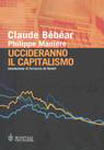
|
|
2. Etica (Business Ethics).
Io credo che il valore forte dei marchi e dell'immagine di una azienda lo si trovi sempre nella stretta corrispondenza con il modo con cui l'azienda in toto si relaziona con il cliente, con la qualità del suo prodotto, con le scelte di responsabilità verso l'ambiente che la circonda. Quanto la scelta di valorizzare i propri asset intangibili, per una qualsiasi organizzazione, si dovrebbe riflettere all'esterno? Dove per "riflettere all'esterno" intendo, non una maggiore visibilità, ma la concreta realizzazione di un cambiamento.
E' il grande tema del CSR della Corporate Social Responsibility su cui anche le principali aziende italiane stanno investendo e molto probabilmente investiranno sempre di più nel futuro. Il rischio è che, al di là delle parole, costruire un azienda "sostenibile" non è facile se lo si vuole fare sul serio si vanno a toccare tutta una serie di interessi e di modalità che indubbiamente possono danneggiare chi in questo momento sta guadagnando da questo status quo. E' vero che è anche impossibile continuare così. Se vogliamo, l'ultimo tentativo di creare un modello non sostenibile a fini di interessi capitalistici particolari è la guerra in Iraq. Ma non sta funzionando, quindi sono convinto che a livello internazionale si svilupperà un'esigenza diversa, di accedere alle fonti energetiche e di produrre. Accanto a questo l'emergere dei nuovi paesi orientali Cina ed India porrà dei problemi grossi di sostenibilità e di inquinamento non verificatisi mai prima! Quindi sostenibilità significherà sopravvivenza! Detto questo la follia dell'uomo non ha limiti.
|
2. Business Ethics.
I think that the real value of a company's brand and image always lies in the close match they achieve with the way the company as a whole relates to its customers, the quality of its products, and the choices it makes with respect to its surrounding environment. For any given organisation, how much should the decision to capitalise on its own intangible assets reflect on the outside world? Where by "reflect on the outside world" I mean not acquiring greater visibility, but actively achieving change.
This is the key theme of Corporate Social Responsibility (CSR), in which major Italian companies too are investing - and will probably do so increasingly in the future. The risk is that talking is one thing, but actually building a "sustainable" company is not so easy, because if you want to make it really sustainable you touch on a whole series of interests and ways of doing things that undoubtedly might damage those who have something to gain from the status quo. It is also true, however, that we can't continue as we are at present. You could say that the latest attempt to create an unsustainable model for the purposes of certain capitalist interests has been the war in Iraq. But this isn't working, so I am convinced that at the international level a different need will develop: to access energy sources and to produce. Alongside this the emergence of eastern countries such as China and India will pose serious sustainability and pollution problems the like of which we have never seen before. So sustainability will mean survival. That said, man's folly is, frankly, without limits.
|
|
3. Cultura.
Per le organizzazioni portatrici di cultura per eccellenza, penso alle biblioteche, ai teatri, ai musei, un generalizzato aumento d'interesse per gli asset intangibili dovrebbe essere una fortuna, come ri-scoprire di avere un tesoro in cantina. Questi tipi di realtà come potrebbero sfruttare la maggiore spinta a valorizzare gli asset intangibili?
E' una domanda molto pertinente e rispondo in modo molto diretto dicendo che queste organizzazioni al momento sono del tutto prive di questa consapevolezza e questo naturalmente è il problema italiano! La tematica degli asset intangibili è nata paradossalmente (anche se è ancora poco applicata) ancora una volta in ambito industriale e finanziario. Il resto delle organizzazioni sono completamente a zero. E' chiaro, e alcuni recenti articoli di Giuliano Amato hanno sottolineato tutto questo, che è il grande tema del "Che fare? dell'Italia o dell'Europa". Anzitutto penso che bisogna sviluppare una maggiore consapevolezza da parte degli artisti, degli operatori culturali, insomma di tutte quelle persone che si occupano di cultura, del reale valore del loro operare. Per alcuni è molto chiaro pensiamo agli attori holliwoodiani o agli astri sportivi ecc. (su questo inviterei a leggere "Il futuro della ricchezza " ed. Franco Angeli di Stan Davis e Christopher Meyer) ma per la gran parte no.
Pur essendo in una società post-industriale la nostra visione economica e gestionale è ancora molto arretrata ed ancorata alla visione e alla misurazione tipica dell'industria. In sostanza la realtà supera la nostra forma mentale ma la nostra visione "astratta" fuori del tempo della realtà ancora ci condiziona pesantemente e ci fa perdere opportunità importanti. Vorremmo ancora continuare a produrre prodotti con la catena di montaggio non capendo che è impossibile è consideriamo residuale il nostro reale core business: la cultura, l'arte, il turismo. Ci sono alcuni fatti in controtendenza: penso per esempio ai bellissimi festival della letteratura di Mantova e a quello dei filosofi di Modena. Sono festival che stanno attirando sempre più persone, anche a livello internazionale. E tutto questo nonostante il trash manipolatorio e abbastanza delirante delle nostre tv. Le persone insomma dimostrano di avere delle risorse insospettabili per poter essere realmente all'altezza di un paese come il nostro che ha avuto una storia così importante a livello culturale. Detto questo è assurdo che sia un americano a dircelo ma sempre Jeremy Rifkin nel suo ultimo libro sul sogno europeo parla dell'Europa come del grande laboratorio del futuro anche a fronte dello spegnersi del sogno americano, ed elenca proprio quelle caratteristiche di cultura e distribuzione della ricchezza, che dopo tanto tempo in qualche modo qui sono presenti e ci permettono di pensare ad un futuro migliore per l'umanità.
|
3. Culture.
For those organisations that are repositories of culture par excellence, such as libraries, theatres or museums, a general increase in people's interest in intangible assets should be a source of good fortune, like re-discovering a treasure hidden in the attic. How can organisations of this sort take advantage of the stronger impetus to capitalise on intangible assets?
This is a highly relevant question and I will reply frankly by saying that at present these organisations are utterly lacking in any such awareness - which is, of course, the Italian problem! The issue of intangible assets has once again, and paradoxically, arisen in an industrial and financial context (although it still hardly applied). All the other organisations are still at the starting line. It is clear, as a number of recent articles by Giuliano Amato have underlined, that this is the great issue of "What are we to make of Italy and of Europe?". First of all, I think we need to develop a greater awareness on the part of artists and cultural operators - in short, of all those working in culture - of the real value of the activities they are engaged in. For some this is very clear: for example, Hollywood stars or leading sports personalities (on this point I would invite you to take a look at "Future Wealth" by Stan Davis and Christopher Meyer, published in Italy by Franco Angeli). For most, however, the question is not clear at all.
Although we are in a post-industrial society our economic and management outlook is still very backward and anchored to a vision, rhythm and pace that are typical of industry. Essentially, our mental capacity has not kept pace with reality but our "abstract" vision, which remains outside the time of reality, still exerts a strong influence on us and causes us to miss important opportunities. We would still like to go on using production lines to manufacture products, because we do not understand that this is simply not possible and consider what is actually our real core business - culture, art and tourism - as being merely residual. There is some evidence to indicate the opposite: for example, the marvellous literature festival in Mantua and the philosophers' festival in Modena. Events such as these are attracting growing numbers of people, including at the international level, and all in spite of the manipulatory and mindless trash shown on our TV channels. In short, people are showing that they have previously unsuspected resources that are enabling them to hold their own in a country like Italy that has such an important cultural history and heritage. That said, it is ridiculous that it should take an American to point this out to us but, to quote Jeremy Rifkin again, his last book on the European dream speaks of Europe as the great laboratory of the future, not least in the face of the waning of the American dream, and lists those features of culture and wealth distribution that after so much time are still to be found here in one form or another and enable us to conceive of a better future for mankind
|
|
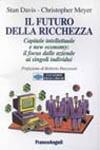 
|
... CONTINUA...
... TO BE CONTINUED...
|
Back
|